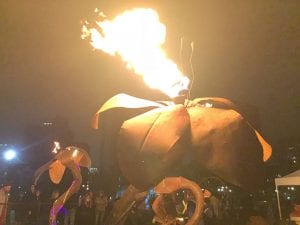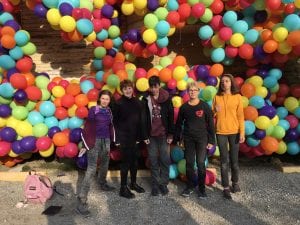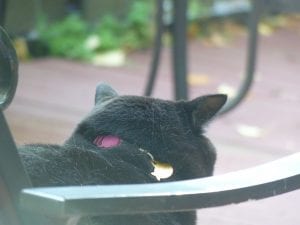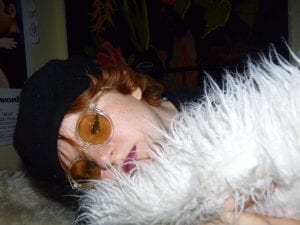Hello everyone, welcome back to my blog! This time, I just finished a…. poetry unit! Pretty cool, right? I actually really love poetry, and this unit was the perfect opportunity for me to explore more about my understanding of poetry, its place in society, and the technical side of it (boring… but necessary)! Keep reading if you want to find out how we made our presentation!
LAUNCH
Introduction to Poetry
Introductive Competency:
Apply appropriate strategies to: comprehend written, oral, and visual texts, guide inquiry, and extend thinking and recognize and appreciate how an increasing range of different features, forms, and genres of texts reflect different purposes, audiences, and messages to shape meaning and impact.
Of course, before we get into ANY good unit, we always start with some initial research about it, to get a basic grasp on our topic. We began with challenging our perspectives on poetry, and seeing what we may assume before learning more about the art form. We observed the evolution of poetry overtime, and how it sort of conforms to society’s ideas of a topic during its specific time period— for example, we examined how love poems have evolved, due to society’s expectations or standards of what “love” can be defined as having changed so much overtime.
We also had a lot of fun playing around with metaphors and making some ourselves. One of my favourite activities was where we compared two random things around us with eachother to create dynamic and interesting metaphors— for example, some of mine were:
Hunger is a yellow light casting spindly shadows on the ceiling.
Hunger is being compared to a yellow light. I think of it like hunger is a beacon that is so bright. It cannot be silenced or muffled, because, well, humans and animals need to eat! Hunger is undeniable. The shadows it casts represent the death that it causes. These shadows block out everything, even the light, because death is absolute.
Hate is a pot boiling on the stovetop.
Hate is a pot. It’s a bucket, a hole, a space inside us that needs to be filled with substance. Whatever we fill it with, we become hateful of. The things we hate simmer and boil up inside our stomachs and make us angry, or threatening, or however you describe your hatred spewing out, like smoke from a kettle pot.
BUILDING KNOWLEDGE
Historical Perspectives
Competency:
“Explain and infer different perspectives on past or present people, places, issues, or events by considering prevailing norms, values, worldviews, and beliefs.”
Another aspect of poetry that we looked at was Historical Perspectives and how they work. Historical Perspectives are difficult, because it’s like writing an opinion paragraph without the opinion— you have to consider two sides, or two perspectives, without personal bias, and provide supporting arguments for either. To combine a bit of history into our unit, we looked at the Civil War, and wrote a historical perspective paragraph about why and why not Abraham Lincoln can or cannot be considered a “tyrant”. It was a difficult activity, but I found the researching and understanding part pretty fun.
Historical Perspective Paragraphs- Lincoln, Tyrant or Hero
However, something that I want to work on in the future is being more succinct with my arguments when I’m writing, especially in paragraphs like these ones, that are meant to be to the point and informative.
Poetic Terms + Poetry Analysis
And finally, we come to the technical part of our unit— the poetic terms! In order to study for our poetry terms TEST (I know, a test… whaaaat) we all each made posters for poetic terms that we were studying, and created our own examples for the terms. My two terms were Free Verse and Oxymoron. I created two visuals for these terms!
Besides Historical Perspectives, there are other ways to analyze poetry, so we did some of that, too! Talking about it in class was very helpful. What I noticed about all of us, including myself, was that we had difficulty interpreting some of the poetry by trying to over-interpret it, in a sense. We talked a bit about people’s tendencies to do this, and even read a poem about it. It was really interesting to see how different people take things different ways, and I think that helped me expand my understanding of how I can and will interpret poetry in the future, and potentially will help me see how others might see something in a different light than I do.
DEVELOP AND CRITIQUE
Developing our topics
After doing all this technical work, we were basically ready to take on the next section: planning our overarching project. In this case, we were to prepare for a Coffee House!!! Yes, it was as fun as it sounds. I was in a group with Jordyn, Anika, Kiyaan, and Caleb.
We had some difficulty deciding on our topic. Again, it was the succinctness— we could not define our topic enough. Eventually, we figured it out, and developed a driving question for our group’s presentation:
How does our understanding of poetry help us understand how revolutions drive change?
The criteria for this project was to find 5 different kinds of poems:
- no more than one song (but you must read it or perform it!)
- one at least 50 years old
- one no more than 5 years old
- one that you write– as a group
- one of your choice
We then had to write an analysis for each poem that we chose, and relate it to our driving question. This was also part of studying another of our competencies:
Express an opinion and support it with credible evidence to transform ideas and information into original texts.
My job was to find a song, so I chose the song “Imagine” by John Lennon. I researched it a bit, and wrote an analysis on it, which you can read right here! MY ANSWER to the driving question relating to this piece of poetry is also HERE!
Imagine by John Lennon- Analysis
We also wrote our own poem as a group, which you can read right here:
Our Poem- Dear Future Generations
Logistics
Our presentation was to be in front of anyone who wanted to come and watch us at a Coffee House, where (obviously) we served coffee and had fun! Going along with my groups’ theme (revolution and change) we brought protest signs as a part of our costume.
We also had to create a Keynote presentation for our poems. Each person got a slide, and we each read our own poem (except for me— since I chose Imagine, Jordyn, Kiyaan, Anika and I sung it, while Jordyn and I played ukulele, and Caleb passed out protest signs.) One we practices a couple times, we were prepared and ready for the actual Coffee House!
PRESENT AND REFLECT
Coffee House!
The Coffee House went pretty great! I’m very proud of our group for pulling together, especially with the song we sung, which was difficult on top of reading other poems and the stress of presenting. Many of our parents came to watch, along with our teachers.
Overall, if I had to change something, I would have wished that we practiced our song more. I also think we could have projected more, and probably been more succinct with our poetry analysis. We dwelled a lot on the historical perspective, but didn’t mention much poetry terminology. If I could improve upon our presentation I would definitely add more research about terminology.
In Conclusion….
Poetry. I can conclude that I still really like poetry as an art form of its own, but my understanding of how it’s written— and the terms that define it— has definitely changed a lot. I’ve developed a better knowledge of how people use multiple literary devices to make their poetry flow properly and sound best, and in contrast, how people choose to not use these devices to make their poems unique and different, all depending on the poet and their preferences. The bottom line is that I’ve had a lot of fun learning how to analyze and write poetry, and also been challenged to study and delve deeper into the logistics of it.


















November 29, 2019 at 5:14 am
Hello! Great poems Millie! They were very interesting to read about!
Take a look at my blog
http://www.blog44.ca/jakubh/
December 31, 2019 at 2:48 am
Hi! Thank you so much Jakub! I will check out your blog. 🙂
Millie